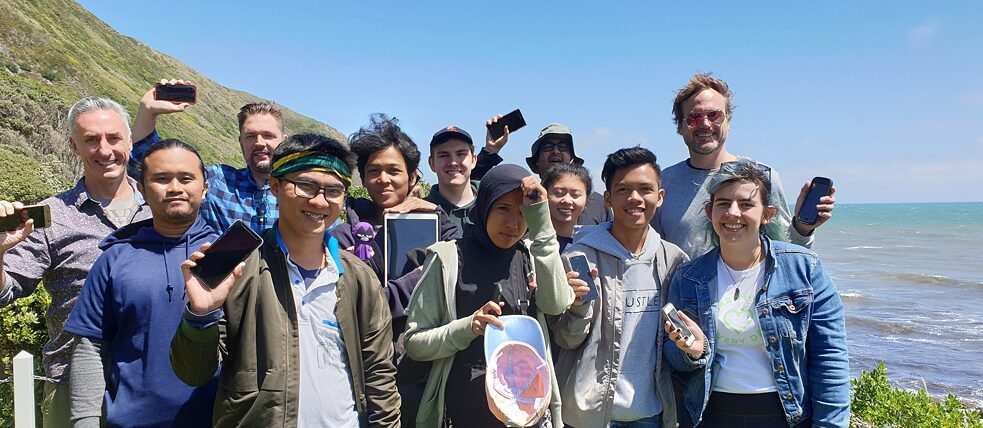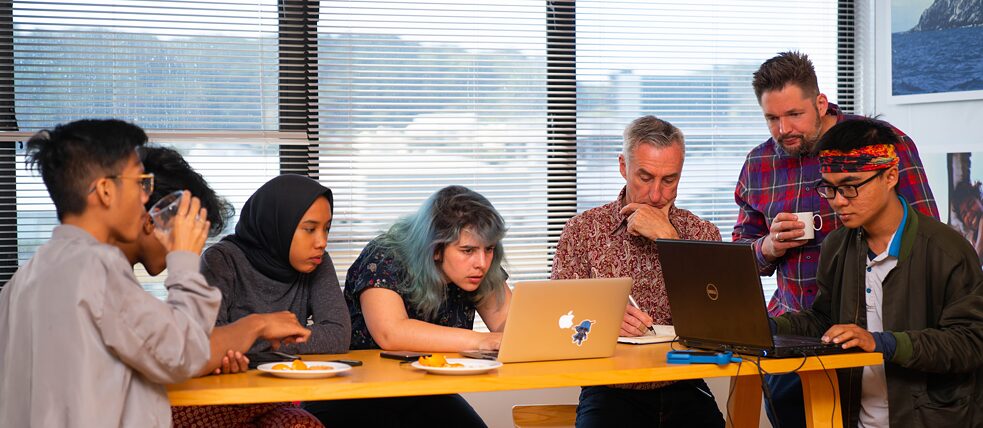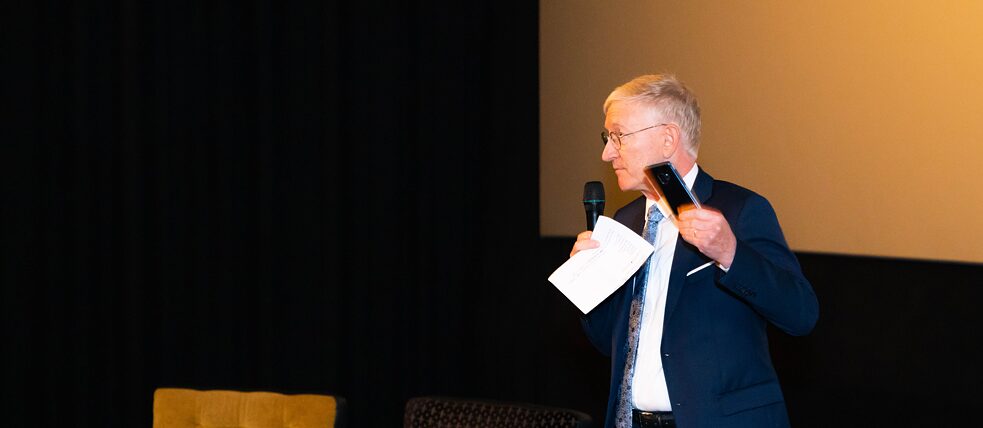"#Nucleus"
Films for a better climate

The Goethe-Institut New Zealand hosted the smartphone film competition "#Nucleus", which stimulated discussion about the environment and sustainability. Now nine filmmakers from seven countries came together to develop a short film.
At the beginning of November, the Goethe-Institut New Zealand was transformed into a film production centre: nine smartphone directors* from seven countries shot a short film together. The theme: What does ecotourism mean and what effects does travelling have on the environment? The nine filmmakers were the winners* of the #Nucleus competition, a joint initiative of the Goethe-Institut New Zealand and the Mobile Innovation Network and Association (MINA). People from Southeast Asia, Australia and New Zealand were invited to use their smartphones to shoot and submit short films about environmental protection. The selected directors came from seven different countries: Australia, Indonesia, Malaysia, New Zealand, the Philippines, Singapore and Vietnam. Their films had previously been selected from almost 60 submissions.
In three days to the short film
The winning filmmakers spent three days at a smartphone film workshop in Wellington, filming on their phones during the day and editing together at night to produce their collaborative film which had its world premiere in Wellington’s Embassy Cinema on November 4. “The process of working together was really unique, really exciting – we had to bond and form a crew very quickly,” said MINA director Max Schleser, who ran the workshop. “We transformed the Goethe-Institut into a production hub, with three different editing stations.”
Smartphone films build community engagement
Mr Schleser said smartphone films help build community engagement around the issues of climate change and sustainability. “Anyone can make them, and they allow film-makers to showcase what climate change means in different countries. It’s really important to have multiple voices in this conversation.” Several of the winning films focused on the importance of trees to the environment. They included “Park Hopping in Bandung”, a light-hearted bicycle tour of more than 20 tree-filled parks in the Indonesian city of Bandung, and “Mānuka” which looks at the ecological importance of the mānuka tree in New Zealand. In “Not Just a Tree Vietnamese” filmmaker Huy Tam Dang looks at the detrimental effect of cutting down trees in big cities such as Ho Chi Minh City, where hundreds of trees have been felled to make way for traffic. “People cut down trees without hesitation and they don’t realise how few trees are left,” Mr Huy Tam said.
 Creative together | Photo: Amirul Firdaus
Creative together | Photo: Amirul Firdaus
Project merged three things we value
The German ambassador Stefan Krawielicki praised the “#Nucleus” project for merging three things we all value – smartphones, the environment and sustainability. “It’s an innovative approach to sustainability and ecology which are issues that are extremely important to governments all around the world, including the German government,” he said. During a panel discussion about the role of culture in tackling climate change, panel member Sarah Meads said smartphone films help “democratise” discussions about climate change. “They allow people to connect and have conversations and engage,” she said. Ms Meads is the founder of Track Zero, an organisation that aims to inspire transformative climate action through the arts.
 Stefan Krawielicki, German ambassador in New Zealand | Photo: Ben Stewart
Stefan Krawielicki, German ambassador in New Zealand | Photo: Ben Stewart
Goethe-Institut New Zealand focuses on sustainability
“#Nucleus” is the Goethe-Institut New Zealand’s second project focusing on ecology and sustainability in 2019. Institut director Christian Kahnt said the impact of climate change is now the biggest issue facing the world, and the Institut held the smartphone film competition to encourage new ways of talking about it. “We were very interested in seeing how differently people from New Zealand, Australia and Southeast Asia would use smartphone films to look at the topics of ecology and sustainability and how their individual approaches would merge in a collaborative film.”
* To help offset the carbon emissions associated with flying the nine winning filmmakers to Wellington for the smartphone film workshop the participants and Goethe-Institut employees spent a half day working on a local environmental project.